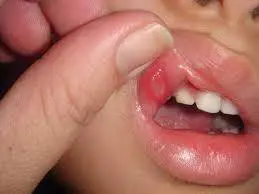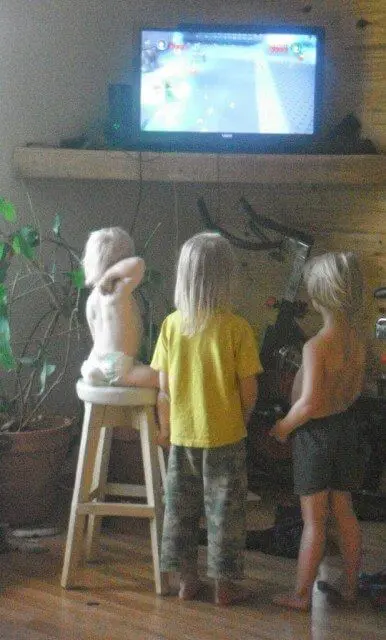Hand, foot and mouth disease was something I had never even heard of. When my toddler suddenly had small pimple-like sores on his butt, I assumed it was just some sort of yeast-based diaper rash or another bane of his eczema. Later, when he complained his tongue hurt, and I found a mouth sore, I assumed he had a canker sore. On both counts I was wrong. My toddler had hand, foot, and mouth disease. Despite being called a “disease,” hand, foot and mouth is actually just a common childhood virus.
While symptoms may vary, I learned when my second toddler began showing signs of this highly-contagious virus you’ll likely see red spots or fluid filled blisters on the hands, feet, and mouth — hence the name. A toddler with mouth sores from the virus will experience raw, painful marks much like canker sores.
Toddlers and infants also often get sores on their butts in the diaper region. Fever, irritability, loss of appetite, and fatigue are other common symptoms. Hand, foot and mouth is contagious only when sores are present and active, meaning they haven’t burst or begun to heal. Much like chicken pox, hand, foot, and mouth is generally a one-time type virus. As there are a few different strains, you can get it more than once, but never from the same strain.
Sadly, because hand, foot, and mouth is caused by a virus, it can’t be treated with medication directly. All you can do is treat the symptoms. The virus generally resolves itself in seven to ten days. However, even seven to ten days can be a long time with a whiny toddler with mouth sores who is in pain and may or may not be able to eat or drink comfortably. Fever and discomfort can benefit from a bit of Tylenol or ibuprofen, but the biggest issue I had was trying to find things my toddler could eat. This is what I learned…
Things to avoid for a toddler with mouth sores:
-Bottles: The sucking motion can be quite painful. On the upside, I used this opportunity to wean my toddler off the bottle at bedtime. Soft-nippled sippy cups seem to be OK.
-Spicy or acidic foods: If you’ve ever had a canker sore you can relate; acidic food in particular, such as citrus, is not recommended.
-Chewy or crunchy foods: Chewy foods tend to stick to the teeth, mingle with saliva and aggravate every sore in your toddler’s mouth. My toddler was particularly annoyed that eating candy hurt. Crunchy foods can scrape against sores causing bleeding or at the least, more pain.
Foods that are good for a toddler with mouth sores:
You want to aim for soft, easy-to-swallow foods that are neutral or base in nature. Dairy-based foods, for instance, are almost always neutral or base. Cold foods can also be very soothing. Here are some ideas to give you an idea of what works:
-Ice cream or Popsicles
-Yogurt or cottage cheese
-Jello or pudding
-Apple sauce
-Mashed potatoes
-Oatmeal
-Clam chowder
-Chicken or beef vegetable soup (do not use a tomato base)
-Seafood or chicken Alfredo, or any white-sauced pasta for that matter
-Macaroni and cheese
In the event your child’s mouth hurts so badly they simply won’t eat, push water. Dehydration is one of the biggest risks of hand, foot, and mouth and other conditions that cause mouth sores. I found my toddler handled milk well during the short period he wouldn’t eat. You can opt for Pediasure dietary supplements if your child will drink milk. They have a touch more sugar, so you may have to dilute them with regular milk, but they can help fill dietary holes from not being able to eat. Ovaltine or other milk-mix-ins may be another option to add some calories. Rest assured that your child won’t die or become skin and bones from a dramatically decreased diet a few days. As long as he or she is getting liquids and peeing regularly, everything should be fine.
Feel free to add your suggestions for a toddler with mouth sores in comment.
You also might want to give this little known complication of hand, foot, and mouth a read, I was pretty freaked out when my kid’s finger and toenails started falling off.



